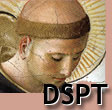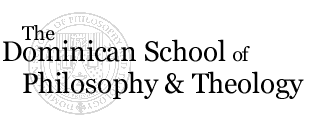

THE MASTER OF ARTS IN THEOLOGY - OPTION II
The Master of Arts degree in theology offers two options for students seeking to broaden their understanding of theology and enhance their academic qualifications. The Master of Arts in Theology (Option II) is a two-year program, which encompasses a broad range of theological study and allows the student to choose an area of specialization, often with a pastoral orientation. The program may culminate in a special project, a series of essays, or perhaps a theological reflection paper. Students may use this program to gain the theological breadth and depth that will help to prepare them for pastoral ministry. Students may choose to specialize in scripture, historical studies, systematic and philosophical theology, moral theology, religion and the arts, homiletics, the cultural and historical study of religion, or Christian spirituality.General Academic Integration
Students in the M.A. Option II develop the ability to reflectively approach living theological issues and to communicate insights effectively to others. The program is an interdisciplinary degree that culminates in the completion of a master's project that exemplifies an academic, creative or pastoral application of the students particular talents or insights. The program seeks to form in students:- a broad knowledge of the fundamental areas of biblical, historical, dogmatic, and moral theology, as well as the ability to communicate that knowledge to others.
- an integrated understanding of theology through reflective research or pastoral application.
- the ability to integrate contemporary theological issues and questions with the tradition of the Catholic Church, especially the theological tradition of Thomas Aquinas.
- a theological understanding of the role of the Magisterium in a pluralistic ecclesial context which often includes divergent views.
- an awareness of other Christian and non-Christian religious traditions within the context of the Graduate Theological Union.
Course work Forty-two units of course work (14 full courses) are required. An additional six units of credit, the equivalent of two courses, are given for the Master's project. Three courses must be taken in the area of Scripture, one in historical theology, and three in systematic theology. The remaining seven courses may be taken from any area. At least four of the total courses must relate to the student's area of specialization. Students must take at least one-third of their total course work from DSPT and are encouraged to take one-third from outside of DSPT. Students are required to maintain a 3.0 grade point average. At least one-half of the course work must be from offerings above the introductory (1000) level, and students are encouraged to take courses from the advanced (4000) level.
Master's project The Master's project, which is equivalent to six semester units of work, may be either academic or practical in nature. An academic project might involve the presentation of a major (40-page) paper or a series of shorter essays written according to the standards prescribed in A Manual for the Writers of Term Papers, Theses and Dissertations, 6th edition, by Kate Turabian, (University of Chicago Press, 1996). A practical project should develop practical skills in the presentation of theological materials. It might involve supervised teaching or supervised direction of a study group, designing a retreat that integrates certain traditions of spirituality, developing an instrument to enable a parish or religious group to evaluate the effectiveness of their educational program, creating a dramatic work or media production with theological significance, etc. The student must present a proposal for the project in the prescribed format to the Theology Department for approval by the end of the third semester in the program. The student nominates a director and two readers for the project; these must be approved by the Department, which may, at its discretion, make substitutions in light of the nature of the project. It is the responsibility of the director to assist the student with the project in whatever way is deemed appropriate.
Online Application Menu
About the Masters of Theology Programs
Masters of Theology Application Menu